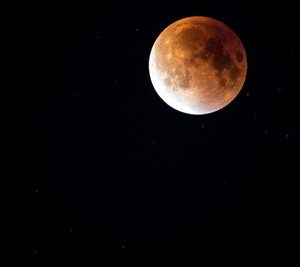How Far Have We Come?
 We worshipped yesterday at Quest Church in our Ballard neighborhood. It is easily the most multi-racial, multi-ethnic church I’ve experienced.
We worshipped yesterday at Quest Church in our Ballard neighborhood. It is easily the most multi-racial, multi-ethnic church I’ve experienced.
Quest manages an odd but wonderful combination of evangelical piety and Jesus-focus with a strong emphasis on social justice. You wouldn’t think that would be odd or unusual — it makes sense to me — but it is nevertheless rare. It’s more often an either/ or than a both/ and.
In previous years Quest has celebrated MLK Day with readings and audios from Dr. King’s writings and sermons. This year they decided to shift the focus to women of the civil rights movement, Praithia Hall and Ella Baker in particular.
It was a welcome change. Instead of hearing King’s “I Have a Dream” speech and singing “We Shall Overcome” once again, we heard from the woman, Praithia Hall, who inspired that speech. It seems that the evening before King’s speech at the Lincoln Memorial Hall had used the “dream” theme. One of Hall’s sermons was preached, powerfully, by a Quest pastor.
Another Quest pastor (both women) read from Ella Baker’s writings and we saw a brief video clip of Baker speaking with urgent passion.
One of Baker’s themes, in what we heard, was that “the struggle” is daily and life-long. “The struggle” included the civil rights movement and struggle against racism, but seemed in the words of this brisk, determined woman to be more than that, larger. Struggle as a way of life.
Certainly not a whiny “I’m struggling,” but “the struggle” to make society more just, more honest and more humane. There is no life — real life — without this struggle, Baker said.
So often today in our country the good life seems to be defined as the absence of struggle. For Baker that would make no sense.
I appreciated that reminder and even permission. Life isn’t supposed to be easy or just one pleasant or one exciting experience after another. Too often the American “good life” has no ethical content or context. It’s not so much that we are selfish, although there is that certainly, but that we are so self-focused.
On the topics of race and racism, the debate over “how far have we (America) come” is a constant pre-occupation. Some argue we’ve come a long ways. “Look, a black man was elected President.” Others say we’ve made no progress at all. “Look, we have a President who is a race-baiting demagogue, who gives cover to white nationalists and supremacists.”
I don’t know how far we’ve come. But I am pretty sure that if life lacks an ethical content and awareness, a sense of struggle against evil and injustice (in society and in ourselves), then the debate over “how far we’ve come” is beside the point.
Our six-year-old grandson, Levi, is a first grader at the new Ella Baker Elementary in Redmond. There the core emphasis and mission is “character development,” a good fit with the school’s namesake.
In the evening we walked back into Ballard to see the movie The Green Book. It is based on the story of a trip taken by an Italian-American man, Tony “Lip” Vallelonga, and an African-American piano virtuoso, Don Shirley, in the deep South in the early 60’s. Tony is the driver and bodyguard for Shirley as they make their way through the perilous south.
The movie has been largely panned by critics for its resort to cliches, familiar Hollywood tropes and for “spoon-feeding” racism in palatable bites for white audiences. All the reviews I saw lambast the movie on all these scores. Get Out or Moonlight it is not. But after these enlightened sniffs, each review I read took a turn. “I enjoyed it,” say reviewers.
Well, I enjoyed it too.
It was as if, from the point of view of the reviewers, to enjoy a film that is at least partly, if not entirely, about race and racism, was a bad thing. We should always feel miserable and guilty.
The “how far have we come” discussion is based on the idea — some would say ‘myth’ — of progress. The idea that history is the story of our slow but steady improvement. It’s an appealing idea, but not one I’m sure that I buy. We make some improvements, “progress” if you will, but the possibilities, and realities, of regress are ever at hand. And sometimes what we call “progress” turns out not to be.
I like Baker’s “struggle” better. The struggle is daily and life-long. Taking part in that struggle, in whatever ways we are called and able to do so, is the important thing. We want to feel like we’ve made ”sufficient progress” and can now take it easy. That will never be, at least according to Ella Baker.
We walked home beneath the full moon and Total Lunar Eclipse. The moon hung, a silver-edged reddish globe above us. The radiant end to this “most amazing day.” (e. e. cummings)
![Anthony B. Robinson [logo]](https://www.anthonybrobinson.com/wp-content/themes/anthonybrobinson/images/logo.png)
![Anthony B. Robinson [logo]](https://www.anthonybrobinson.com/wp-content/themes/anthonybrobinson/images/logo-print.png)